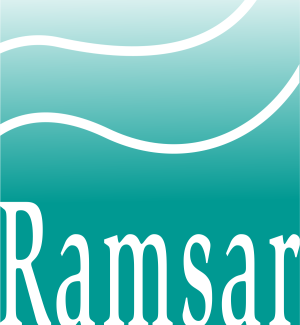About
Delegates adopted 21 resolutions, including several intended to increase the scope and diversity of engagement in the work of the Wetlands Convention. These included promoting the role of Indigenous Peoples and local communities in wetland management, connecting with youth, and expanding synergies and cooperation with other multilateral environmental agreements.
Final report
Summary report 5–13 November 2022
All coverage
The Ramsar Convention on Wetlands is the oldest of the modern multilateral environmental agreements. Since its adoption in the Iranian city of Ramsar in 1971, the Convention has focused on “the conservation and wise use of all wetlands through local and national actions and international cooperation, as a contribution towards achieving sustainable development throughout the world.”
Wetlands are of paramount importance for planetary balance and human survival. Among the world’s most productive ecosystems, wetlands foster biodiversity by offering conducive environments for thousands of species. They provide invaluable services to humans, including as a source of fresh water, food, livelihoods, fiber and fuel, protective barriers from floods and droughts, and natural carbon storage.
Despite wetlands’ importance, they face severe pressures and are declining in many parts of the world, in both size and quality—losses that jeopardize key ecosystem services. Recognizing these global challenges, the Convention on Wetlands and its 172 Contracting Parties have been working to address the need for wetland management for more than half a century.
The 14th meeting of the Conference of the Contracting Parties (COP14) will address numerous draft resolutions, submitted by Contracting Parties and the Standing Committee. These include resolutions on:
- the effectiveness and efficiency of the Convention;
- the review of the fourth Strategic Plan and elements for the fifth one;
- enhancing the Convention’s visibility and synergies with other multilateral environmental agreements;
- operational guidelines for regional initiatives;
- the Programme on communication, capacity building, education, participation and awareness (CEPA);
- the Ramsar Wetland Conservation Awards and updating the Wetland City Accreditation scheme;
- wetland education and strengthening Ramsar connections through youth;
- the status of Sites in the List of Wetlands of International Importance and reviewing the Ramsar Criteria;
- enhancing the conservation and management of small wetlands;
- integrating wetland conservation and restoration into national sustainable development strategies;
- protection, management, and restoration of wetlands as nature-based solutions to address the climate crisis;
- waterbird population estimates to support new and existing Ramsar Site designations; and
- the establishment of the International Mangrove Center.
COP14 will also consider administrative and financial matters, including progress reports from the Secretary General on the implementation of the Convention and from representatives of the Convention’s bodies on their work.
COP14 will take place 5-13 November 2022 in both Wuhan, China, at the East Lake International Conference Center (ELICC) and Geneva, Switzerland at the International Conference Centre Geneva (CICG). The opening ceremony and the high-level segment will be held in a hybrid format with participation of invited representatives both in Wuhan and Geneva linked via video. Negotiations and all other aspects of COP14 will take place in-person in Geneva.
View past and future events
Past event
7th Meeting of the Conference of the Parties to the Ramsar Convention (COP7)
Past event
8th Meeting of the Conference of the Parties to the Ramsar Convention (COP8)
Past event
9th Meeting of the Conference of the Parties to the Ramsar Convention (COP9)
Past event
10th Meeting of the Conference of the Parties to the Ramsar Convention (COP10)
Past event
11th Meeting of the Conference of the Parties to the Ramsar Convention (COP11)
Past event
12th Meeting of the Conference of the Parties to the Ramsar Convention (COP12)
Past event
13th Meeting of the Conference of the Contracting Parties to the Ramsar Convention on Wetlands (COP13)
Past event
14th Session of the Conference of the Contracting Parties (COP14) of the Convention on Wetlands (Ramsar Convention)
To receive free coverage of global environmental events delivered to your inbox, subscribe to the ENB Update newsletter.
